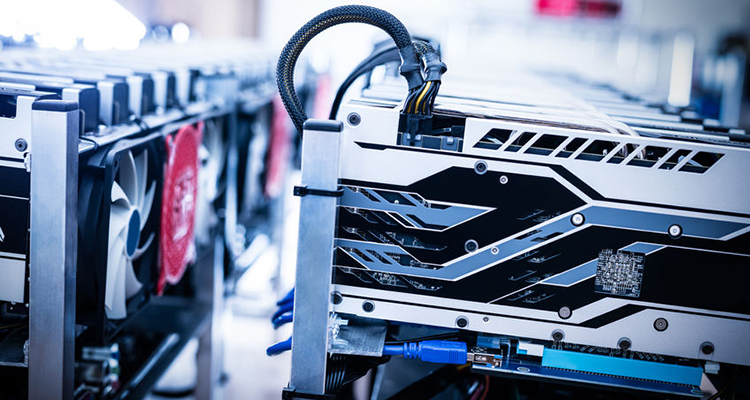(Trade) War, Huh, Yeah… What is it Good For…
 While the United States’ administration seems to be picking trade war fights with just about everyone these days, creating jitters across almost every sector, an all too familiar scene played out in late May just outside of Bangkok. The Royal Thai Police conducted yet another raid on an open-air but well-hidden operation with all the trappings of a good Steven Segal movie. Shady location, low skilled undocumented manual labor workforce, dangerous work conditions and overlords that reaped the benefits of the ill-gotten gains. Their contraband? E-waste. Mountains of discarded computers, projectors, cell phones, video monitors and TVs all coming from their main supplier – the United States.
While the United States’ administration seems to be picking trade war fights with just about everyone these days, creating jitters across almost every sector, an all too familiar scene played out in late May just outside of Bangkok. The Royal Thai Police conducted yet another raid on an open-air but well-hidden operation with all the trappings of a good Steven Segal movie. Shady location, low skilled undocumented manual labor workforce, dangerous work conditions and overlords that reaped the benefits of the ill-gotten gains. Their contraband? E-waste. Mountains of discarded computers, projectors, cell phones, video monitors and TVs all coming from their main supplier – the United States.
Now what does that possible have to do with trade wars? Plenty. As I have written about on numerous occasions, e-waste is the fastest-growing trash stream in the world, predicted to reach 57 million tons by 2021. This waste stream is both an environmental nightmare of our own making but also a huge economic opportunity. The materials, such as gold, silver, cobalt and copper, are all valuable to the economies of the world to make the products we use and the innovation we crave. Sadly, most of these materials are spread around landfills globally never to be seen again.
This results in further mining operations, deforestation, pollution of water ways and the air, among a whole host of other toxic materials such as arsenic, lead and plastics that are also buried along side the resources that are beneficial. Roughly 20 percent of e-waste makes it to formal recyclers and the fate of the rest is unknown. Of the industrialized nations, only 42 compile e-waste statistics and the explosive growth keeps making it harder for them to keep up with data collection. In the United States, about 6.3 million tons a year wind up in our landfills which accounts for two-thirds of the heavy metals in those landfills within the US.
The only other producer of e-waste that passes the United States in the world is China – who we are in a trade war with and who, until recently, we sent most of our e-waste to. The United States, unlike China, however, is the only industrialized and developed country that has not signed onto the Basil Convention on Hazardous Waste. This treaty restricts the export of e-waste and has over 186 signing parties. Since the United States also does not have a national policy on the handling of e-waste, instead leaving it up to the states, there are no formal regulations on where this trash goes to be recycled with other countries. There are also very limited e-cycling facilities within the U.S. itself, causing anything we don’t export to be buried in a landfill. Additionally, since the European Union has the strictest e-waste laws in the world, they are out as a potential alternative to trading China our waste stream. Canada and Mexico are also not really interested as well. Add on top of this the rhetoric and policy regarding international trade coupled with the protectionist attitude and we have simultaneously alienated ourselves into living in our own waste.
So, what is a country like the United States to do except ramp up shipments to countries that we have not yet named in any trade war? These smaller countries are less equipped to deal with the massive stream of e-waste in any responsible way opening the door the shady and illegal operations the resulted in the raid in Thailand. These raids are becoming all too common. The waste stream agreements that were previously in place were based more on reuse and repair of electronics in developing countries, not wholesale recycling. When you look at the value of the materials being extracted despite the environmental impacts of these countries methods on air, land, water and human health, it is easy to see why they would be so willing to take the risk. It is estimated that about 10 percent of the worlds gold lives in either landfills or the e-waste stream set up for recycling at any cost. This is true especially for materials such as cobalt, with is rare and located in its virgin state in heavy conflict zones. It is estimated to be a 61 billion a year value of the extraction of these materials whether done in a safe manner or otherwise. That is often more then the entire gross domestic product of any one of these developed nations making it a cash cow for them at any cost.
The way to stem this tide and avoid the challenges of this material has to start with the manufacturers finding was to make their products easier and less dangerous to be recycled. Additionally, planned obsolescence is a major contributing factor as to when the waste stream is growing at such a rapid pace. And lastly, having defined ways to make it easy for customers to want to recycle their electronics either through buy back programs, on incentives to go to qualified recyclers within the US. Otherwise it will require legislation by the Government to deal with the problem, and that has its drawback as well depending on which camp you sit in.
There is also a realization that these materials are a finite resource and that it may be in each countries best interest to mine and extract from the e-waste stream on their own turf the valuable materials necessary for future products and innovation. Otherwise you might be shipping to a developing country in a shady operation who might sell your materials to the highest bidder and it might not be you. And I highly doubt Steven Segal can save the situation within the tidiness of an hour and a half movie now matter how much we would want him to.
A potential positive side to this is that it will force innovation into better ways of developing recyclable electronics and dealing with the current issue so trade wars are no longer a factor.



